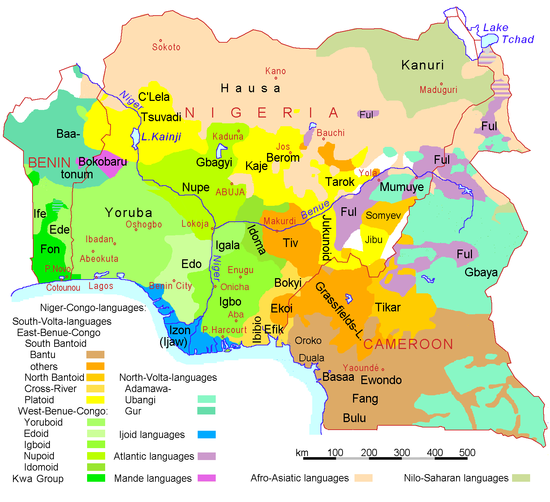I'm in my third week of Hausa class. Three mornings a week I catch a keke at 8:15am, and it takes about ten minutes to drive to the southern part of Jos where my class is held.
There are two other students in my class. One is a Nigerian lady who primarily speaks English, but has some Hausa background. She is interested in learning the grammar and how to properly speak the language. The other is a missionary involved with another organization, and she will be assisting pastors in more rural areas of Nigeria to use the portions of the Bible that have been translated into those languages. (The Hausa Bible or Littafi Mai Tsarki was first translated in 1932, updated in 1979, and again in 2012. Many people in Northern Nigeria speak Hausa, but there are more than 521 languages spoken in Nigeria alone!)
We have two teachers that take turns leading our class. Mama (a term of respect) Bilhatu and Jummai are so patient with us, and they really know how to break down the language in a way that English speakers can relate to. For instance, they refer to the "yi" word that precedes "yi aiki," "yi wanke," or "yi adda'a" as a "helping verb" or something that takes a noun and turns it into a verb.
 |
| photo credit |
There are two other students in my class. One is a Nigerian lady who primarily speaks English, but has some Hausa background. She is interested in learning the grammar and how to properly speak the language. The other is a missionary involved with another organization, and she will be assisting pastors in more rural areas of Nigeria to use the portions of the Bible that have been translated into those languages. (The Hausa Bible or Littafi Mai Tsarki was first translated in 1932, updated in 1979, and again in 2012. Many people in Northern Nigeria speak Hausa, but there are more than 521 languages spoken in Nigeria alone!)
 |
| https://en.wikipedia.org/wiki/Languages_of_Nigeria |
We have two teachers that take turns leading our class. Mama (a term of respect) Bilhatu and Jummai are so patient with us, and they really know how to break down the language in a way that English speakers can relate to. For instance, they refer to the "yi" word that precedes "yi aiki," "yi wanke," or "yi adda'a" as a "helping verb" or something that takes a noun and turns it into a verb.
I thought English pronouns were confusing! I, me, my, he, him, his, she, her, hers, you, your, they, them, their, we, our. Um... Hausa has different forms of you! There's a you word when you're talking to a female, there's a you word for when you're talking to a male, and there's a you word for addressing a group. Actually, that kind of makes sense since Texans differentiate between "you" and "y'all!"
We start Hausa class by 8:30 with someone leading a short devotion, then we review our homework from the lesson before. We take a break about 10:30 for tea, and sometimes we get to talking (in English) and laughing that it's nearly 11:30 before we get back into Hausa again! Our lessons are done by 12:30 (although sometimes I'm a bit envious of the primary school (elementary school) children that get out at noon in the school just behind where we meet), and then I take a keke back to my house.
I spend those three afternoons a week doing homework, cooking (that's a GREAT stress reliever!), sometimes going to the market, and sometimes dealing with whatever issue has arised that needs to be addressed. Last week I ended up making three trips to the market in one week as I forgot to refill my anti-malarial meds one time, then didn't have enough money with me to purchase an internet modem at the telecom shop, and another time I ran out of milk powder (no real milk here!).
Last night as I was doing laundry I was hearing "Zan je gida..." (I will go home...) or "Na dafa shinkafa da wake..." (I cooked rice and beans...) in my head. And I heard it in the haltingly British accent of my classmate. And then I heard Mama Bilhatu correctly pronounce the phrase. But I guess after hearing Hausa for 12 hours a week, it makes sense to hear it in my head!
So far, I can say things in the past and in the future tenses. The present tense is much more difficult, so we're saving that for last! My vocabulary is still quite small, as we are focusing more on grammar and sentence structure than memorizing word lists right now. Actually, I'm OK with that. I learn new words all the time from the keke driver who regularly drives me around, from the little girl who helps her mother out at the convenience store around the corner, and from Abba, the daytime guard at the compound gate. They're all excited for me to learn Hausa, but I keep having to tell them "Ki (or Ka) maimaita hankali hankali!"("You(f) or you(m) repeat slowly!")
No comments:
Post a Comment